New president for 'country of the year' makes history
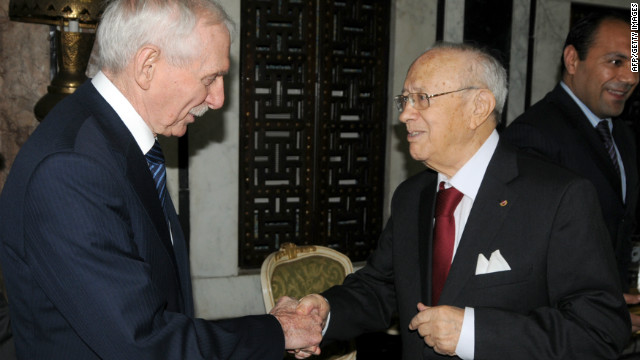
Beji Caid Essebsi, right, is Tunisia's new president-elect. In this 2011 photo, he shakes hands with diplomat William Swing.
Long-time politician Beji
Caid Essebsi won the country's runoff with about 55% of the vote,
beating outgoing President Moncef Marzouki's 44%, state-run media
reported Monday.
It was a hard-fought
race. On Sunday, despite earlier indications Essebsi had won, supporters
of Marzouki rallied in downtown Tunis.
Security forces responded to rock-throwing rioters by firing tear gas to quickly disperse the crowds, state-run media reported.
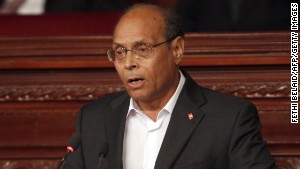
Outgoing Tunisian President Moncef Marzouki
As a candidate, Essebsi
promised to restore the state's prestige after the chaotic years since
the 2011 revolution, when the country's dictator, President Zine El
Abidine Ben Ali, was ousted. But Marzouki warned that Essebsi would
bring back authoritarian policies.
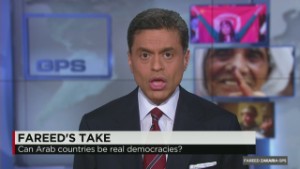
Fareed's Take: Arab states & democracy
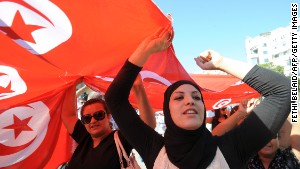
Tunisia's secularists face many challenges
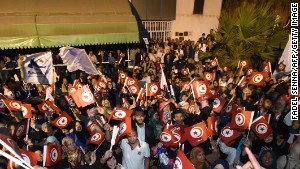
Tunisian lawmaker calls for unity
The fact that the elections -- considered legitimate -- took place at all is historic.
The election process
began in October with a vote for parliament. "At a time when hopes of
moving towards political reform and accountable governments elsewhere in
the Arab world have been dashed, Tunisia is the only country where the
aspirations of the Arab uprisings may yet be fulfilled in the near
future," Anthony Dworkin of the European Council on Foreign Relations wrote at the time.
On Saturday, The Economist declared Tunisia its "country of the year."
"The idealism engendered
by the Arab spring has mostly sunk in bloodshed and extremism, with a
shining exception: Tunisia," the magazine wrote. "... Its economy is
struggling and its polity is fragile; but Tunisia's pragmatism and
moderation have nurtured hope in a wretched region and a troubled world.
Mabrouk, Tunisia!" ("Mabrouk" is a way of saying "congratulations" in
Arabic.)
The revolutions that
spread throughout the Arab world began in Tunisia when a poor
26-year-old who could not find a job had a run-in with police and then set himself on fire in front of a government building in December 2010.
Source:By Josh Levs, CNN, re-posted by Abdulgafar (www.econsforumnews.blogspot.com)










0 comments:
Post a Comment